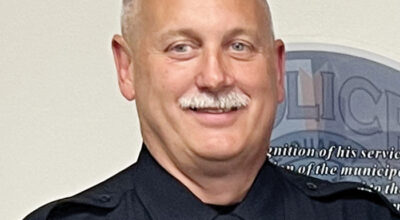Revised bill would place sweeping new restrictions on voting
Published 12:00 am Wednesday, July 24, 2013
RALEIGH (AP) — A revised bill supported by Republicans at the North Carolina legislature would place sweeping new restrictions on when, where and how citizens can vote.
Legislation that advanced Tuesday in the Senate rules committee would cut the state’s early voting period by a week and eliminate same-day voter registration. It also increases restrictions on provisional voting and would eliminate straight-ticket voting.
The measure also repeals publicly funded elections for judicial races, increases the maximum individual campaign contribution from $4,000 to $5,000 and weakens disclosure requirements showing who pays for political ads.
The bill would require voters to present a government-issued photo ID at the polls. Student IDs issued by the state’s public universities and community colleges would not be accepted. The bill also ends the ability of high school students to register to vote in advance of their 18th birthday.
The bill now heads to the Senate floor, where Republicans outnumber Democrats nearly 2-to-1.
Republicans say the measures are necessary to combat voter fraud, which they claim is rampant and often goes undetected.
“People need to have confidence in the fact that everyone only votes once, and that their vote matters, and establish integrity in the electoral process,” said Sen. Bob Rucho, the Mecklenburg Republican who shepherded the bill through committee. “I would hope we can pass this bill and re-establish a level of integrity and confidence in the electoral system.”
Nonpartisan voting rights groups and Democrats point to the lack of evidence that such widespread fraud exists, suggesting the restrictions are instead aimed at suppressing voter turnout.
A Democratic analysis of records for the last six statewide elections, in which more than 30 million ballots were cast, shows elections officials confirmed only two cases of in-person voter fraud. State elections statistics also show those most likely to not have state-issued ID cards such as drivers licenses are the elderly, African-Americans and the poor — groups considered more likely to vote for Democrats.
“You’re going to have a situation with this bill where you’ve got people who voted all their lives that are going to show up at the polling place and not going to have what they need to vote,” said Sen. Martin Nesbitt, D-Buncombe, the Senate minority leader. “That is outrageous.”
Sen. Josh Stein, D-Wake, cited statistics showing nearly three quarters of all voters had cast an early ballot. He challenged Rucho to explain how trimming the early voting period from 17 days to 10 days would be beneficial.
Rucho suggested that county elections boards would save money through the shortened schedule, funds that could potentially be spent to increase the number of early-voting locations. However, there is no requirement in the bill that county elections boards, which have Republican majorities, do so.
Nesbitt predicted North Carolina voters would soon face long lines, as has happened in other states where Republican legislatures had tightened voting rules.
“This is exactly what happened in Florida, where they didn’t have enough sites and people were lined up around the building,” Nesbitt said. “I’m concerned that is going to happen here. That will hurt your voters as much as it will hurt our voters. It’s just a bad deal.”
The Supreme Court voted 5-4 last month to effectively halt the enforcement provisions of the Voting Rights Act, enacted to outlaw racial discrimination against voters in local, state and federal elections. North Carolina was among the states, mostly in the South, that were subjected to special federal enforcement, with requirements to get approval in advance before they could make even minor changes to voting laws.
The high court’s ruling cleared the way for North Carolina Republicans to enact voting law changes without having to obtain federal approval.
The state House passed the bill with the voter ID requirement in April, but Senate leaders waited until what is expected to be the last week of the legislative session to take up the measure and add a raft of additional voting restrictions.
During the nearly two-hour debate in the Senate rules committee, 10 members of the public were allowed to speak briefly. All criticized the bill.
Brent Laurenz, executive director of the nonpartisan N.C. Center for Voter Education, said he was deeply troubled that lawmakers would introduce such sweeping changes in the waning days of the legislative session.
“We have seen in other states what can happen when early voting is reduced: long lines, frustrated voters and overwhelmed poll workers,” Laurenz said. “Voting is among the most fundamental and sacred rights that we have as North Carolinians and as Americans. Any effort to limit the free exercise of that right should be examined cautiously, fairly and with full public involvement.”
As Laurenz and the others spoke, some Republican lawmakers rolled their eyes, talked among themselves or checked their smart phones for messages. When many in the audience twice applauded comments made by the opponents, rules committee chairman Tom Apodaca, R-Henderson, ordered members of the sergeant-at-arms staff to immediately clear the room of all who had clapped.
Bob Hall, executive director of the voting advocacy group Democracy North Carolina, warned the GOP lawmakers that the state’s voters would hold them responsible for what happens at the polls.
“You’re building your legacy here,” he told them. “Good luck to you.”



